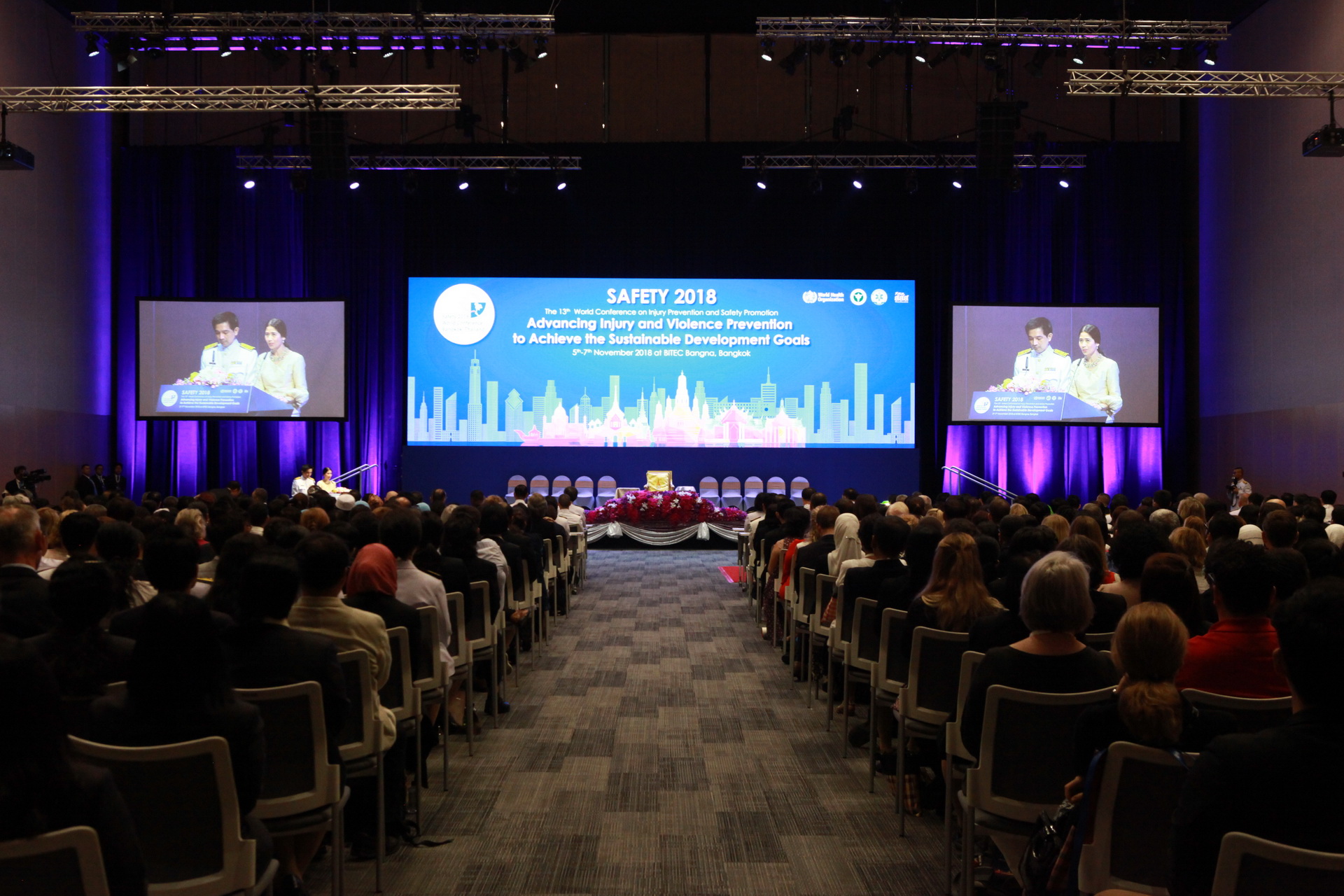
The dangers associated with alcohol became the unexpected focus of the final session of the 13th World Conference on Injury Prevention and Safety Promotion (Safety 2018), the most significant global conference on injury prevention, hosted by WHO, which was held 5–7 November in Bangkok, Thailand. Safety 2018 is held every two years and brings together academics, NGOs, health professionals, and global stakeholders from across the spectrum of injury prevention, including road safety.
The signing of a declaration or commitment is a feature of many international conferences, and the wording is prepared in advance of the session. In an unusual step at Safety 2018, a last-minute amendment to the Bangkok Statement was proposed by delegate Dr. Catherine Staton, a trauma specialist at Duke University, US, to include a statement on the contribution of alcohol to all kinds of injuries, violence and noncommunicable diseases. During the conference, many sessions highlighted the effect of alcohol on drownings, particularly among male adults; burns; and other types of injury. Alcohol is a major risk factor in road traffic crashes as well as a health risk that causes both mental and physical conditions. Dr. Staton proposed the following addition to the declaration:
“The conference recognizes that harmful alcohol use contributes to all types of injury, violence, and NCDs, causing significant morbidity and economic loss. This burden can be minimized by stronger alcohol policies and cross-cutting alcohol harm reduction strategies. Similarly, the conference requests WHO, as a health promotion institution and role model, consider introducing a policy that health conferences or meetings organized by WHO, exclude support for alcoholic beverages.”
The move was accepted and added to the statement.
Read the full statement HERE. Read an NGO perspective on Safety 2018 HERE.